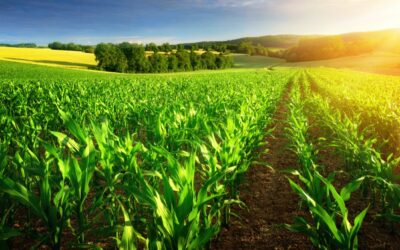COVID-19: Implications for the European fertilizer industry
Following the important and necessary emergency measures taken by EU Member States during the Coronavirus pandemic, the disruptions in the Single Market have been observed. The re-introduction of borders and restrictions of movement of people and goods, has brought many challenges for the economy and for the agri-food supply chain in particular. The EU fertilizer industry has also been impacted in different ways. Below are listed some of the main developments facing our industry.
Fertilizers and food security
On 16 March, Jacob Hansen, DG Fertilizers Europe sent out a letter to the EU Commissioner for Health, Mrs Stella Kyriakides drawing her attention to the fact that fertilizers play an important role in the EU food chain, and therefore the sector should be regarded as essential thus ensuring continuation of transportation and distribution of fertilizers in the Single Market.
Fertilizers Europe welcomes the 23 March EC Communication on the implementation of the Green Lanes, which included ‘agricultural inputs’ among the priority groups.

“Fertilizers are closely connected to food security. Especially during growing season in the spring when fertilizers are primarily applied to the field. Farmers and horticulturists depend on the supply of fertilizers to grow their crops and thereby our food.”
Jacob Hansen, Director General, Fertilizers Europe
Ensuring employees’ health and safety
European fertilizer producers are committed to maintain operations in these challenging times to ensure timely delivery of quality nutrients to EU farmers, thus helping safeguard food security for the next season. Industry’s ability to maintain its operations is also dependent on industry’s capacity to ensure a safe and healthy environment for its employees.
“Human health is a main concern for our members. Guaranteeing protection for labour operating in vital sectors is key. Urgent action is needed to put in place relevant, tailor-made health and safety measures and ensure supply of protective equipment and testing tools for our employees, both on production sites and logistics”.
Jacob Hansen, Director General, Fertilizers Europe

EU Single Market
During the informal EU Agri Council, Peka Pesonen, Secretary General of COPA-COGECA, insisted on farmers’ need to acess fertilizers. The European Union needs to keep its single market open despite the coronavirus epidemic if it wants to guarantee food supplies for its consumers.

“We are supposed to be planting for the next year’s crop. But what if we don’t have access to fertilizers and seeds? This process has to start in the coming weeks”.
Peka Pesonen, Secretary General, COPA-COGECA
Logistical issues
Delays and disruptions at country borders have impacted the transportation and delivery of fertilizers. The European institutions promptly acted to ensure that agricultural inputs are listed as priority products.
On 23 March, the European Commission issued the Communication on the implementation of the Green Lanes. In this communication, the EC stated that transport workers and operators of agricultural input should be considered as one of the priority groups.
The European Parliament's agriculture committee
demanded urgent measures to protect the EU's farming system. The agriculture committee listed fertilizers as priority items alongside
medicine and fresh food.
The free movement of seasonal workers is also another
issue. To ensure the cross border
movement of critical workers, the European Commission
published on 30 March a practical advice for Member
States. The food sector is recognised a key sector in this
communication.
Read our dedicated articles on how the COVID-19
impacted the fertilizer industry in specific EU countries.
Situation of the Fertilizer sector and agriculture in Germany with respect to COVID-19
Germany has so far been less severely affected by the virus outbreak than most other European states. The number of registered infections and especially the number of deaths related to COVID-19 have been rising slower than expected in the last weeks of April. Thus,...
The Italian fertilizers sector during the COVID-19 emergency
Italy was, unfortunately, the first European country called to face the COVID-19 crisis. The lockdown of the entire country was established by the Italian Government in the first days of March. The agri-food sector and all the activities linked to it – among which the...
The Dutch fertilizers sector during the COVID-19 crisis
The Netherlands has endured as, like most other EU memberstates, an unprecedented health and resulting economic crisis due to COVID-19. Due to appropriate and strict measures that were taken by our government and surrounding memberstates, the first positive signs of...


